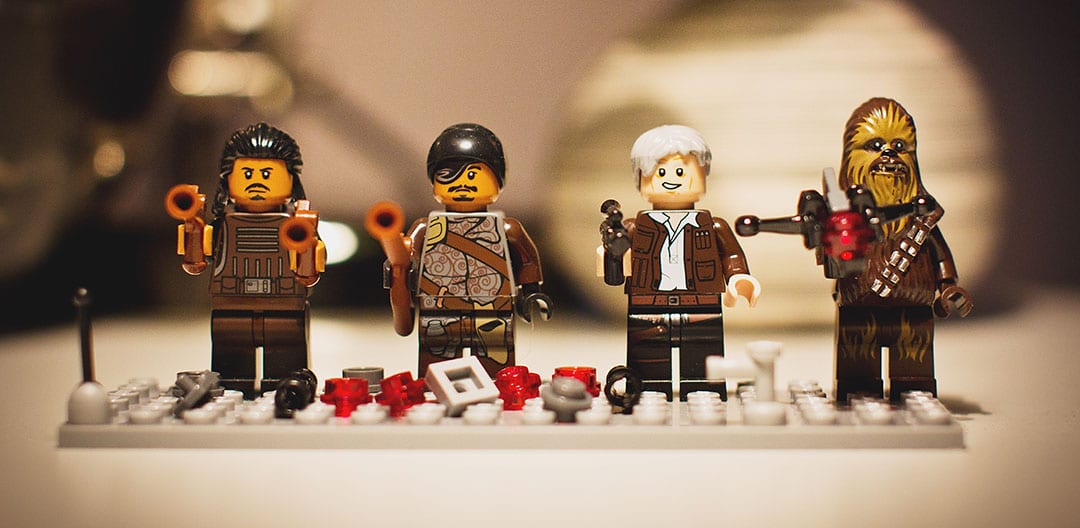Insight: Is customer experience sufficient to win loyalty?
GeoMarketing has a revealing interview with Thom Kozik, VP of global loyalty for Marriott International, who argues that "loyalty is absolutely a dated concept" and that "generic points-based loyalty programmes" are no longer enough to keep customers coming back. All true, up to a point. But are personalisation and experience alone enough to win the battle for customer loyalty?
Money quote from the article:
"Essentially, Koziks view is that generic points-based rewards programmes are not enough to keep customers coming back; in the on-demand era, personalisation and individual experience are what win the day. Consumers want upgrades and offers that are tailored specifically to their needs."
To drive home this point, writer Lauryn Chamberlain illustrates these key points from the interview with Kozik:
The hotel industry is being disrupted. The combination of third-party travel aggregators, AirBnB, and digital startups means that large-scale hotel operators such as Marriott can no longer count on brand loyalty - and hotel reward points - to drive repeat business.
Experience and immediacy win. Money quote from the GeoMarketing article from hospitality analyst Loren Gray: [Reward programme] Membership is a failure for younger people on an operational level. They dont want rewards far in the distance; immediacy is key. If theyve visited several times, they want to see something for that otherwise they dont care.
Connect data sources to drive personalisation. "Brands [must] go the extra mile with studying and understanding their consumer base. Demographics, location, frequency of visits, and more matter when it comes to crafting the personalised experience that keeps people engaged in the face of a host of options," says Chamberlain.
Connect touch points to drive experience. "Brands must prioritize 'customer relationship management.' This can include typical loyalty features like recognition when someone walk into a property, but its also more than that; its personalised communication through text or email, [and] quick responses when a customer makes a request in person or via a device," says Chamberlain.
Understanding customer value is essential. Another key money quote from Kozik: I spent 10K at [a Ritz-Carlton property] over two years. But according to Marriott, I didnt exist because I didnt spend a night in a bed. Marriott makes money off of restaurants, spas, and golf courses to not consider those purchases as part of loyalty is a big disconnect. We have to reconnect all of the touch points.
These points are all true and well taken. The writer reveals a bit of bias, however, with her pronouncement that these points are "bad news" for companies who run loyalty programmes. When Kozik says that "loyalty is a dated concept," he isn't arguing for the abolishment of hotel loyalty programmes. He's arguing for abolishing generic programmes. Simply offering a point per dollar to offer consumers deferred discounts will no longer suffice when consumers have so many choices, says Kozik - and he's right.
What would happen, however, if Marriott ended Marriott Rewards and built their loyalty efforts entirely around personization and experience? We have a case study: ten years ago, Wyndham Hotels tried exactly that, eschewing a points programme in favor of a loyalty programme built around those elements alone. What Wyndham found is that there are limits to how personalised you can make a guest experience; once you've greeted a guest by name, assigned him his preferred suite and floor, placed his favored feather pillows on the bed and his preferred brand of bottled water on the nightstand, there isn't much left to personalise - and then customers start looking elsewhere for those free nights.
Sure enough, Wyndham soon added points earning back to their programme when they learned that experience management alone was insufficient to win guest loyalty. That's because the most effective loyalty value propositions provide a balanced blend of hard economic benefits such as free nights, and soft recognition elements such as personalisation and individualised experiences. It's the combination of reward and recognition that works - focus too much on one side, and you leave an opening for your competition.
Just as importantly, you're going to be offering discounts to best customers one way or another - and if you don't offer points, you'll have to offer straight discounts on bookings. The reason why reward points work is that their fungibility allows you to build margin into the programme by rewarding on spatial or temporal variables - driving customers to under-performing properties with bonus points, say, or bonusing customers for booking stays during the off-season. Absent points programmes, hotels would soon find themselves in price wars, relying on the rampant discounting model that hampers the profits of most retailers.
Kozik is right that operating a reward programme alone is a dated concept. Personalisation, relevance, and a frictionless customer experience are essential to winning the battle for loyalty - but to win, these elements must compliment your rewards programme, not replace it.
- Rick Ferguson
More Info:




